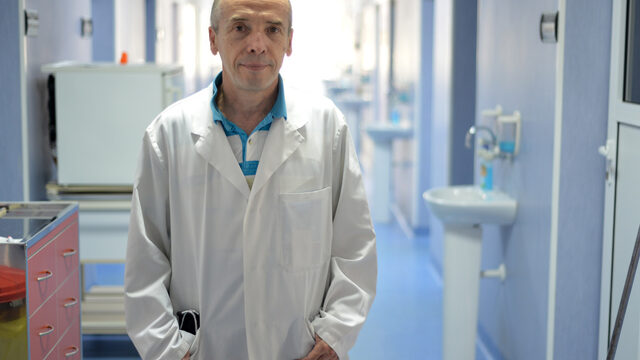It was a hard week for Capital and Dnevnik websites.
The two media portals, owned by the company that owns Kapital insights, suffered a heavy DDoS attack and were up and down several times over the past 7 days. It is, of course, unnerving, costly and damaging to have your website shut down by someone, especially when you use that website to inform the public.
Yet, as important as we are in our own eyes, the reason I'm telling you this is not to elicit sympathy or, indeed, mockery of our IT department. Because it seems that more likely than not, we were part of a wider cyber-attack on Bulgarian web space.
As we were being bombarded with traffic and were trying to put our business back online, other, larger public services were also attacked. The banking system Borica, the Bulstat company register, the Parliament website and others were targeted. The methods were different, but the timing was precise.
There is no certainty as to who was behind those attacks. Yet a curious coincidence is that in the very same week many Ukrainian public registers were taken down by hackers, including the whole citizen database which was posted online. The Polish army also admitted a breach, saying many secret details of its armaments were leaked online.
One theory is that Russian government-backed groups were engaged in exercises to appraise Moscow's ability to take down cyber targets in case of say, need. It's a hard thing to prove. Russia is an overbearing threat and indeed has been a regional one for quite some time - their disinformation cyber-troops have been marching around since at least 2015. Yet this might, of course, be something entirely different.
As we warily watch Russian troops mass on the Ukrainian border, and cross our fingers in hope that things won't escalate as they did in 2014, there is little Capital, or any business here can do about a potential conflict.
Yet here is a word from the ones who got burned: do invest in cyber security. There are between 5 and 6 smaller attacks every day, and between 3 and 4 big ones every month, says Mihail Semerjiev, who oversees the division dealing with that in A1 telecom. The silent cyberwar is waging around us at all times and whether Russians are responsible or not, your business will suffer if caught in the crossfire.
This week's newsletter was co-produced with
1. Politics this week:
Harvard, meet Harvard
That's how the meeting between the two new Prime Ministers of Bulgaria and N. Macedonia, Kiril Petkov and Dimitar Kovachevski - both graduates of the elite US higher education institution - was drawn by the notorious Prass-press cartoonists earlier this week.
Except for the alumni talk though, what did the meeting bring about?
If you ask Mr Petkov, it was so successful that his opponents envy him. The N. Macedonian side agreed to send the UN an official note in which it clarifies that the new name of the country makes no reference to the geographic area with the same name in Bulgaria. This practically means that Skopje won't have any territorial claims vis-a-vis Bulgaria.
This is hardly news - it already existed in the 2017 Good Neighbourhood agreement and notifying the UN is but a gesture.
Historic silence
But more importantly, the meeting was notable for what was missing - any discussion regarding the work of the historic commission that is supposed to clarify the different interpretations of the past between the two countries, no mention of the rights of people with Bulgarian identity (which is at the heart of recent Bulgarian policy towards N. Macedonia) and anything that has to do with Skopje's EU accession.
So, while an optimist would say that the visit made some cracks in the icy relationship, a pessimist like the foreign policy spearhead from the GERB opposition, Daniel Mitov, could claim: "I didn't see anything new."
So N. Macedonia is not entering the EU any time soon.
But at least you can fly there. The Bulgarian Prime Minister announced that Sofia and Skopje would finally have a direct flight within the next two months.
Covid back with a vengeance
Every day this week, Bulgaria has been setting a record number of new cases as the more infectious Omicron variant of Covid spreads. With about 10-11,000 new confirmed cases every day, many regions have already taken up restrictions.Sofia's health inspectorate proposed moving classes for most of the older students (grades 5,6,8,9 and 11) online and limiting the maximum capacity and working time of restaurants and bars to 50 percent and 22:00, respectively. The decision is still not confirmed, but would likely take effect early next week.
2. Economy:
Real Estate - getting expensive faster than the EU's average
This is what data from Eurostat shows, when comparing Bulgaria to other European countries. Since 2010, real estate prices in the country have jumped by 43%, while the EU average is 39%. This is nothing compared to Estonia and its 141%, or Hungary's 118%. Yet while Estonia's rents have jumped by an even higher margin, Bulgaria's have been up by under 20%. This clearly shows that Real Estate here is an investment instead of money in the bank, and not a for-profit buy.
Figures:
3. Business:
Loans
The two banks will loan up to 325 million euro to SME's up to 500 workers with eased conditions. This is part of the EIB agreement the banks signed this year for COVID-related measures.
Venture
Morningside Hill fund has invested 1 million euro in the grain and oils laboratory. This is meant to widen the scope of its work and area.
Food
Last quarter sales are up by 36%, data from the company shows. In November Smart Organic went public and gathered over 6 million levs.
4. Brussels:
- The European Commission and national consumer protection authorities released the results of an EU-wide website screening ("sweep") on online consumer reviews. More than 223 major websites were checked for misleading consumer reviews. More information here.
- The new Unitary Patent system will be introduced in the EU in order to provide a one-stop-shop for the registration of patents in Europe, lower costs for patent protection, and increase legal certainty by making it easier to enforce patents in the participating Member States in a centralized manner
- While COVID continues to spread intensively in the EU, Romania abandons plans to introduce COVID passes for workers.
5. Energy:
Rising fuel prices are gaining momentum.
he prices of the two most traded oil brands - Brent and WTI, exceeded 80 dollars per barrel at the beginning of the year and are now moving to 100 dollars. The last time the quotes were so high was in 2014.
The change continues in the energy regulator
But not exactly as promised. This week the governing majority in Parliament announced its plans to amend the Energy Law so that it could change almost all of the current members of the Energy and Water Regulation Commission (KEVR), despite only two of them - president Ivan Ivanov and commissioner Eugenia Haritonova, nominated by GERB, having completed their mandates.
First of all, the number of commission members would be cut down from 9 to 5. Second, most of the qualification requirements would be dropped (despite promises to make the organ more expert-driven than political), likely in order to appoint the already designated favorite for the presidential post - former interim minister of economy and energy Vasil Shtov, who is relatively inexperienced in the sector.
In any case, political interference in KEVR may seem necessary at the moment, but it is fundamentally undesirable. The regulator should make its decisions on the basis of objective facts, not political expediency. To do otherwise would only deepen problems in the sector.
The notorious doctor who became the emblem of Covid-denialism and anti-vaccination finally got reprimanded for his "false statements and outright lies" by the Bulgarian Doctors' Union. On 16 January, Mangarov, an infectious diseases associate professor, falsely claimed that 564 people in Bulgaria had died from the vaccine during a TV debate in Nova TV.
Grozdan Karadzhov
The new regional minister started making appointees in various important structures - the last one being the highway builder Avtomagistrali, and the Water holding.
Galina Zaharova
The newly elected president of the Supreme Judicial Council is, surprisingly, one of the few high-ranking magistrates who has managed to grow in their career without getting involved in scandals and opposing the Council's controversial appointment policy on the basis of principles.
Location
BurgasIs the region with the biggest unregistered loss of people in the previous decade, preliminary data from the census shows. Almost 50 thousand people are missing from the books, which means most of them migrated and haven't registered.
Date:
25 January
Фашист - Fascist
Prime Minister Kiril Petkov's visit to Skopje earlier this week spurred one of the favorite recurring topics of the Bulgarian public - what is fascism and did it ever exist in Bulgaria. A passing comment he made during the Q&A with his Macedonian counterpart that "there were fascist regimes everywhere in Europe at the time" seemed to concur with the long-running Macedonian claim that Bulgarian fascist occupational forces controlled the small country during WWII.This obviously heated up tensions among nationalists, who have long refuted this claim, and socialists (and some liberals) who agree with it. This is yet another reason why politicians ought not to toy with history and loaded terms they barely understand, if at all.
It was a hard week for Capital and Dnevnik websites.
The two media portals, owned by the company that owns Kapital insights, suffered a heavy DDoS attack and were up and down several times over the past 7 days. It is, of course, unnerving, costly and damaging to have your website shut down by someone, especially when you use that website to inform the public.













